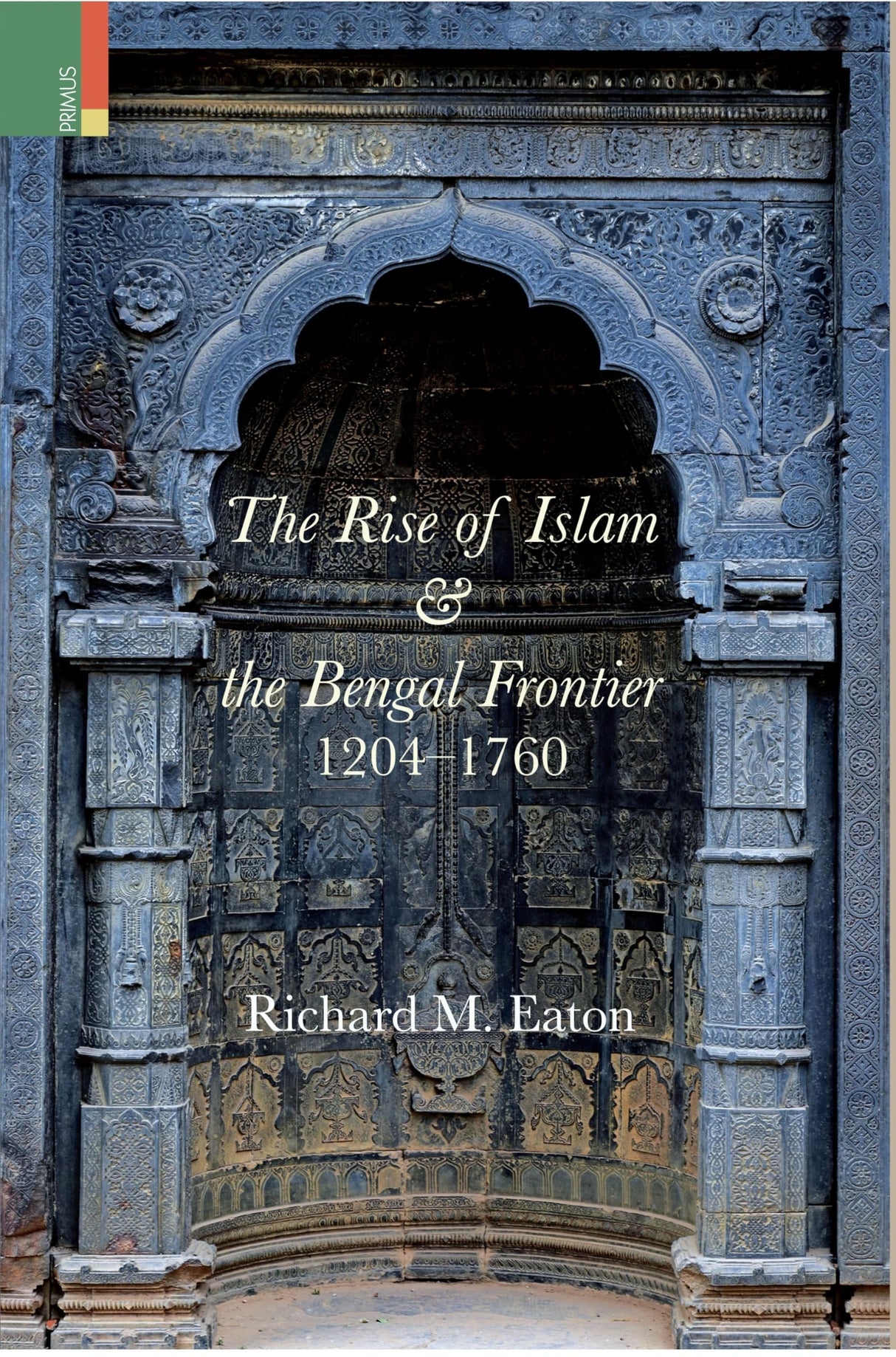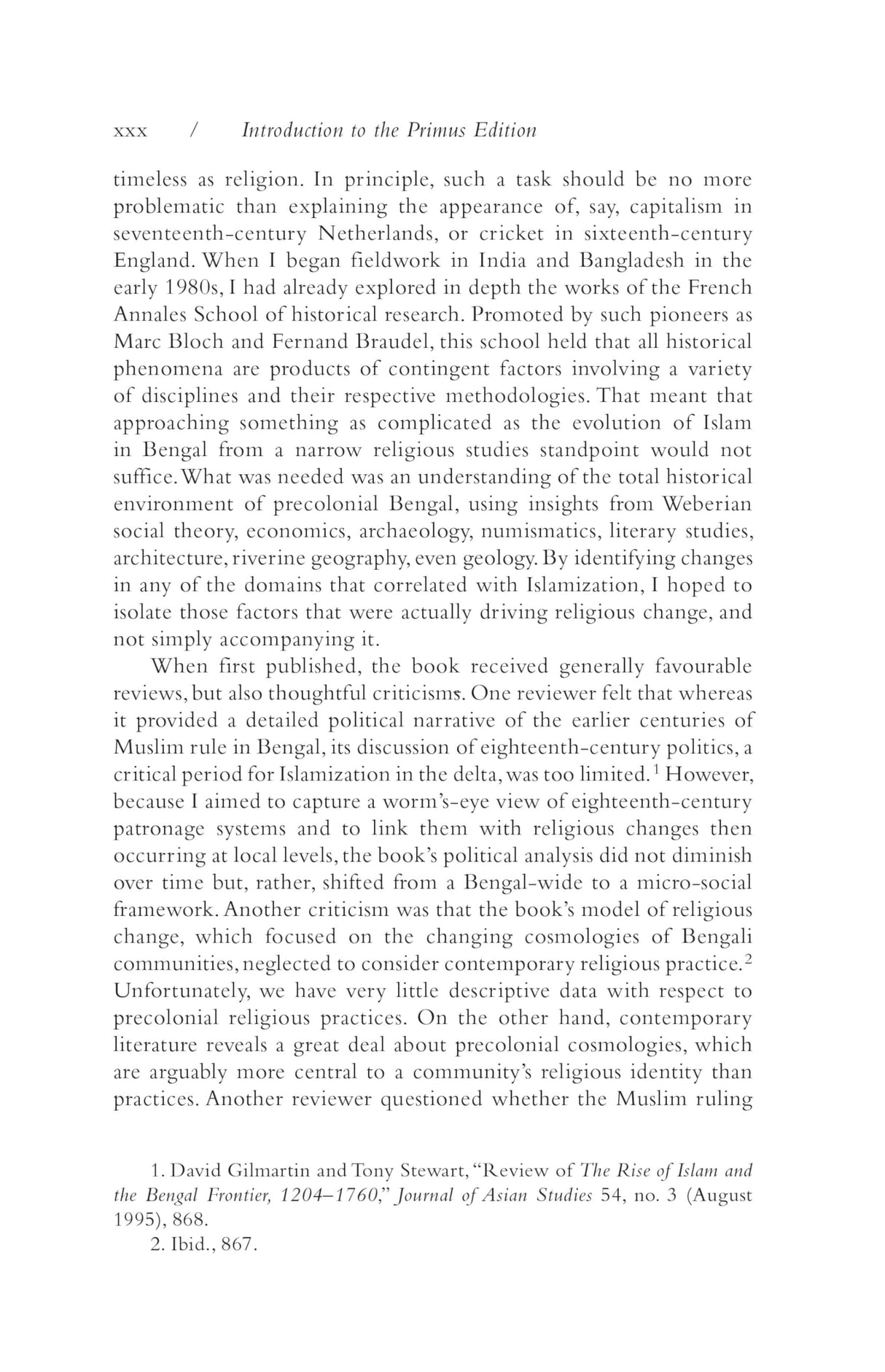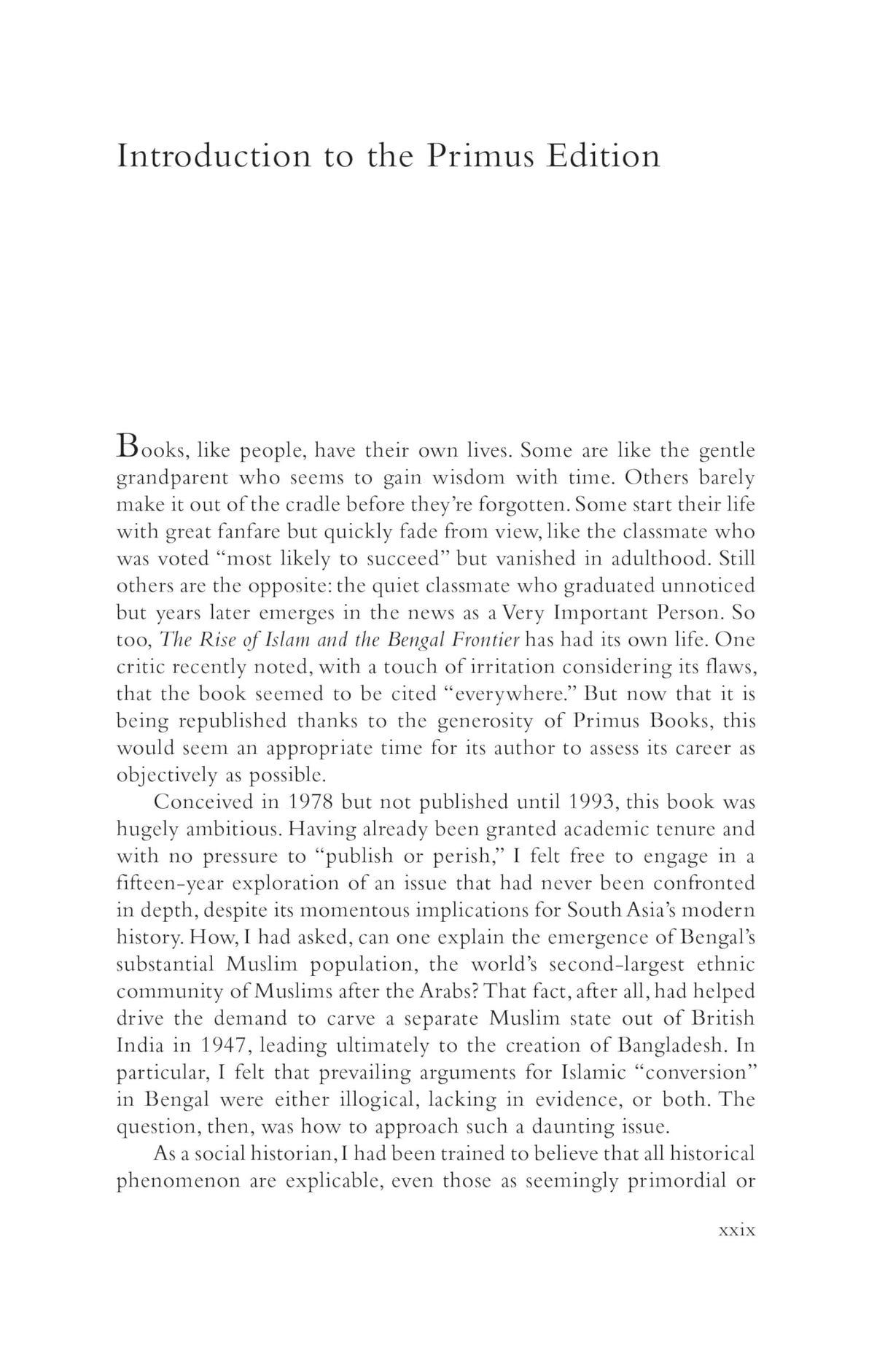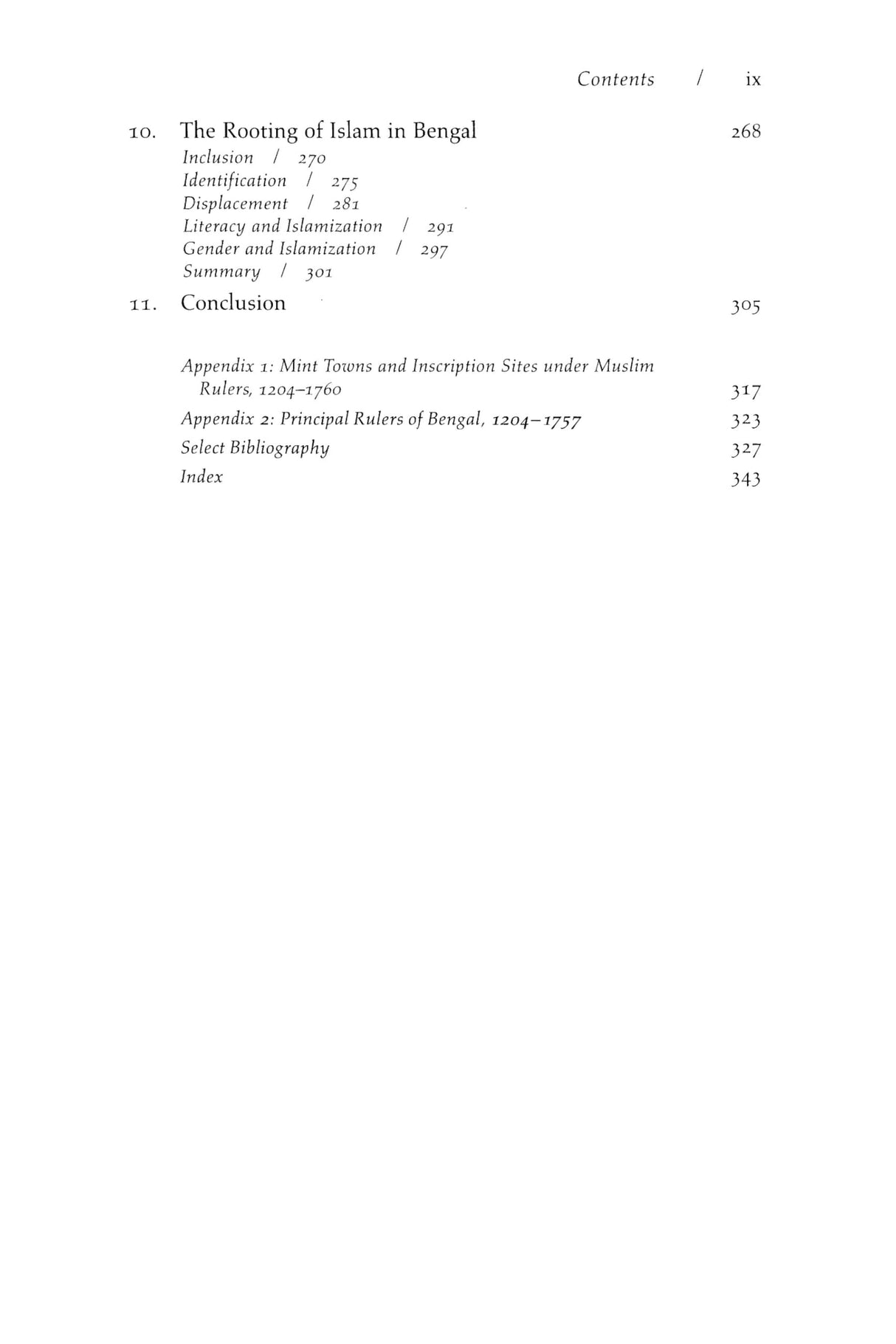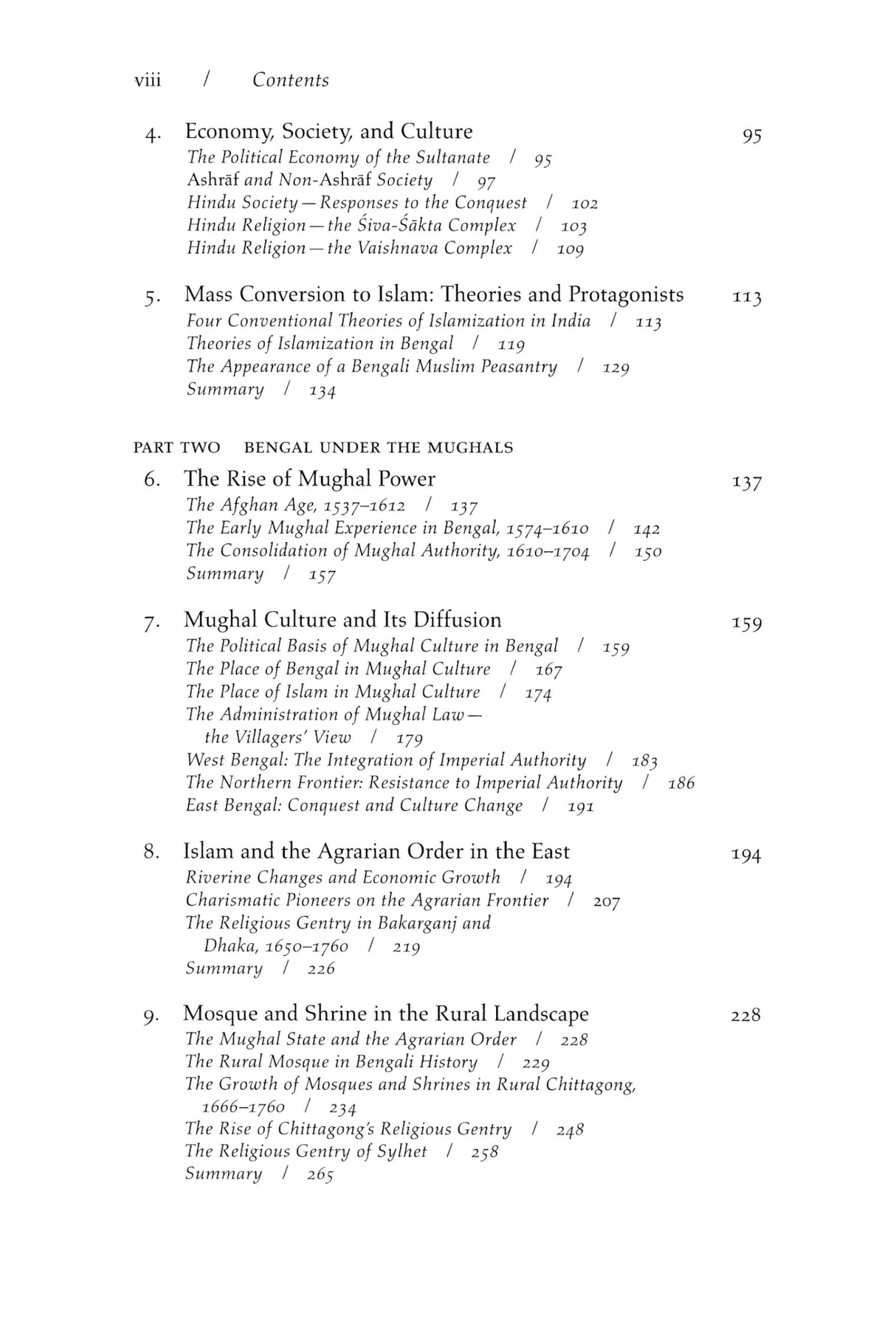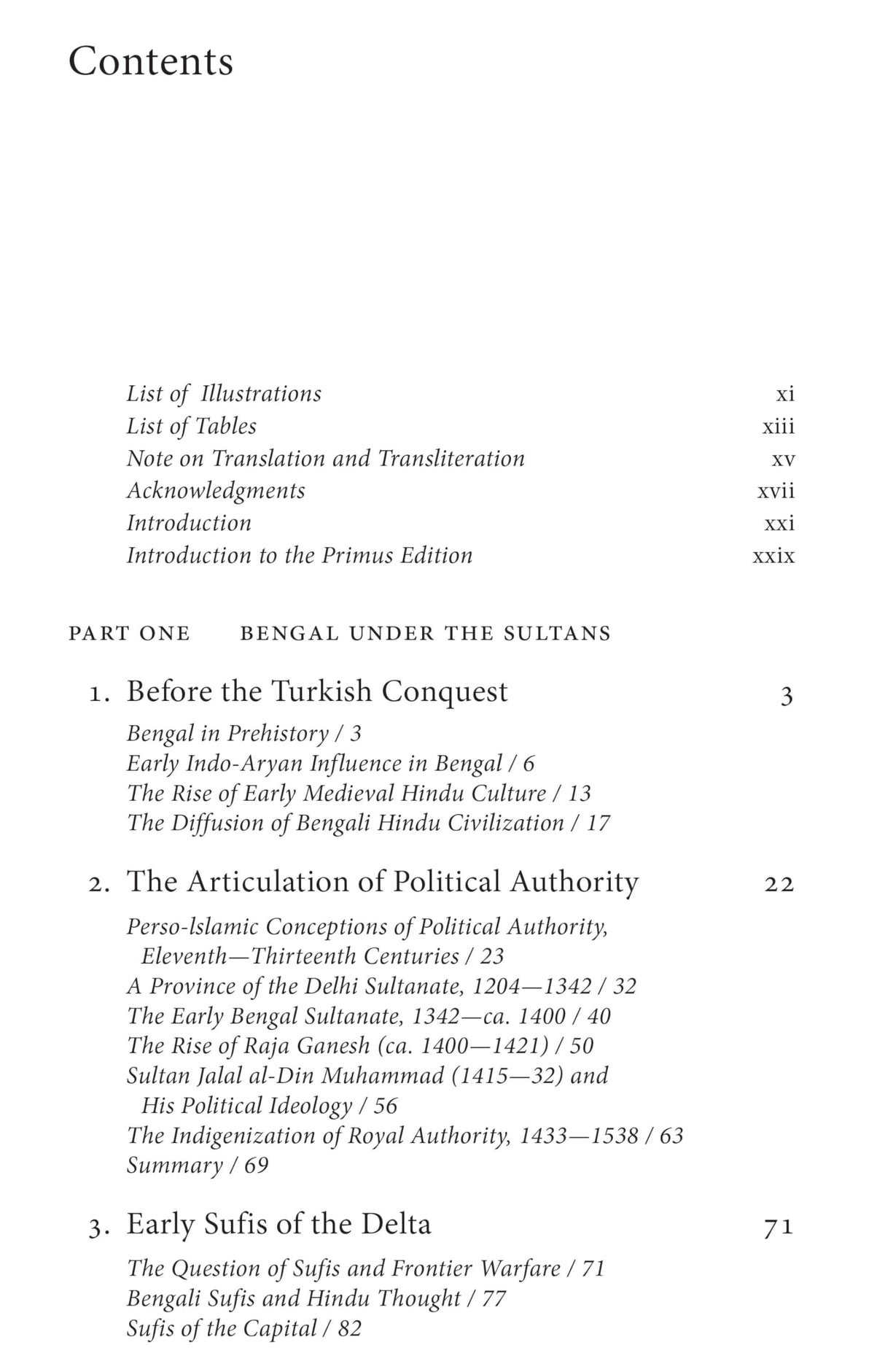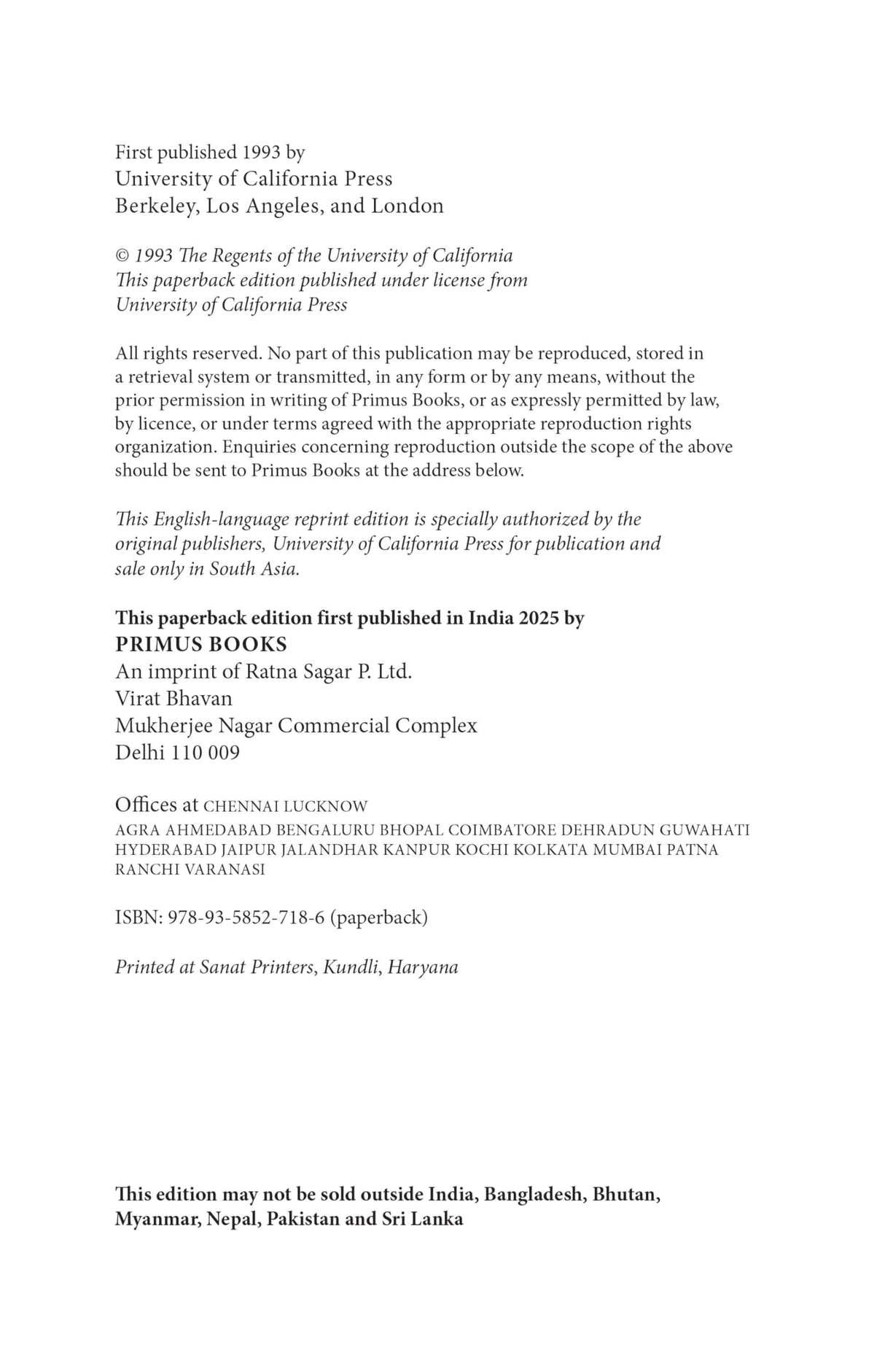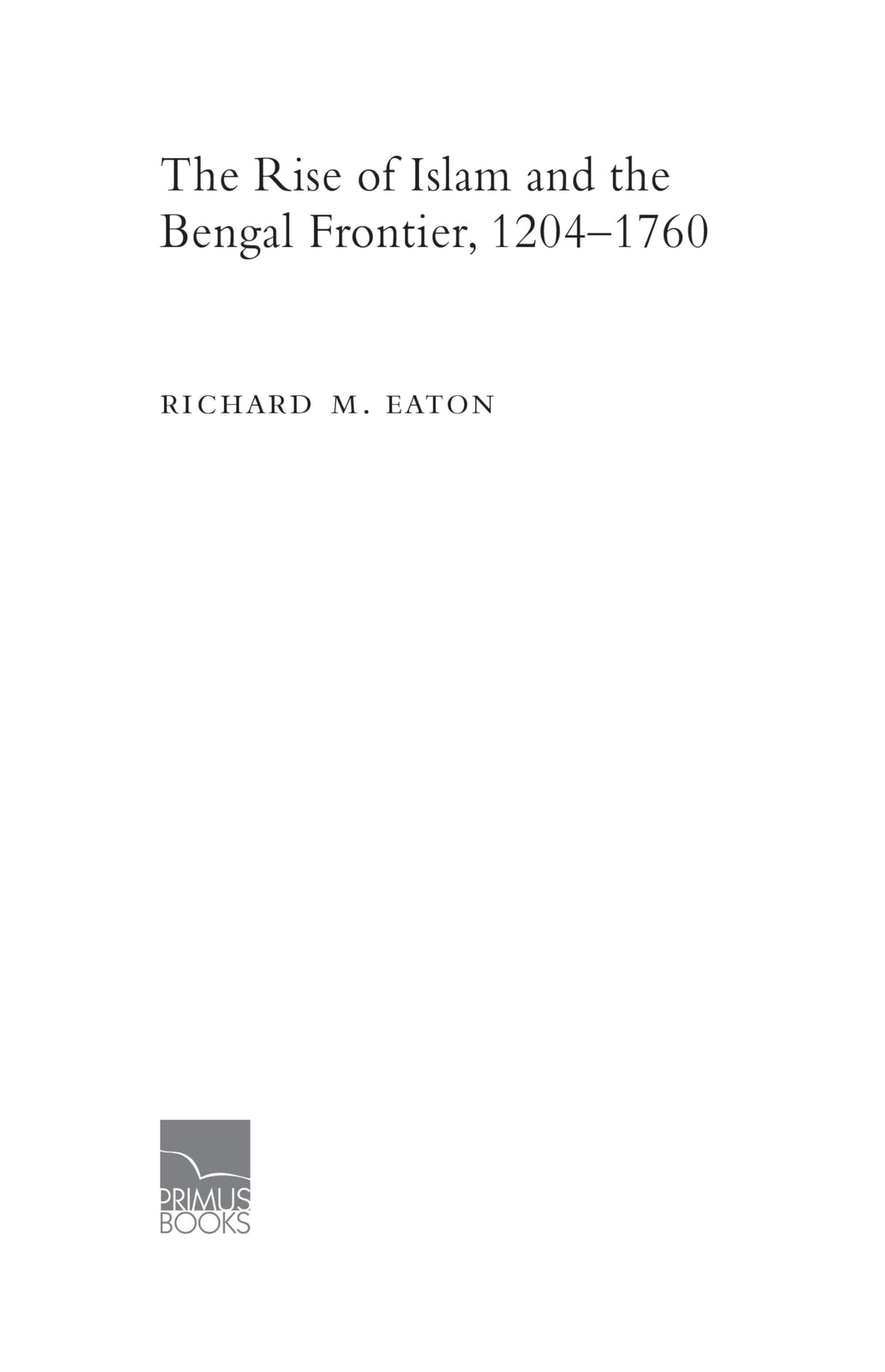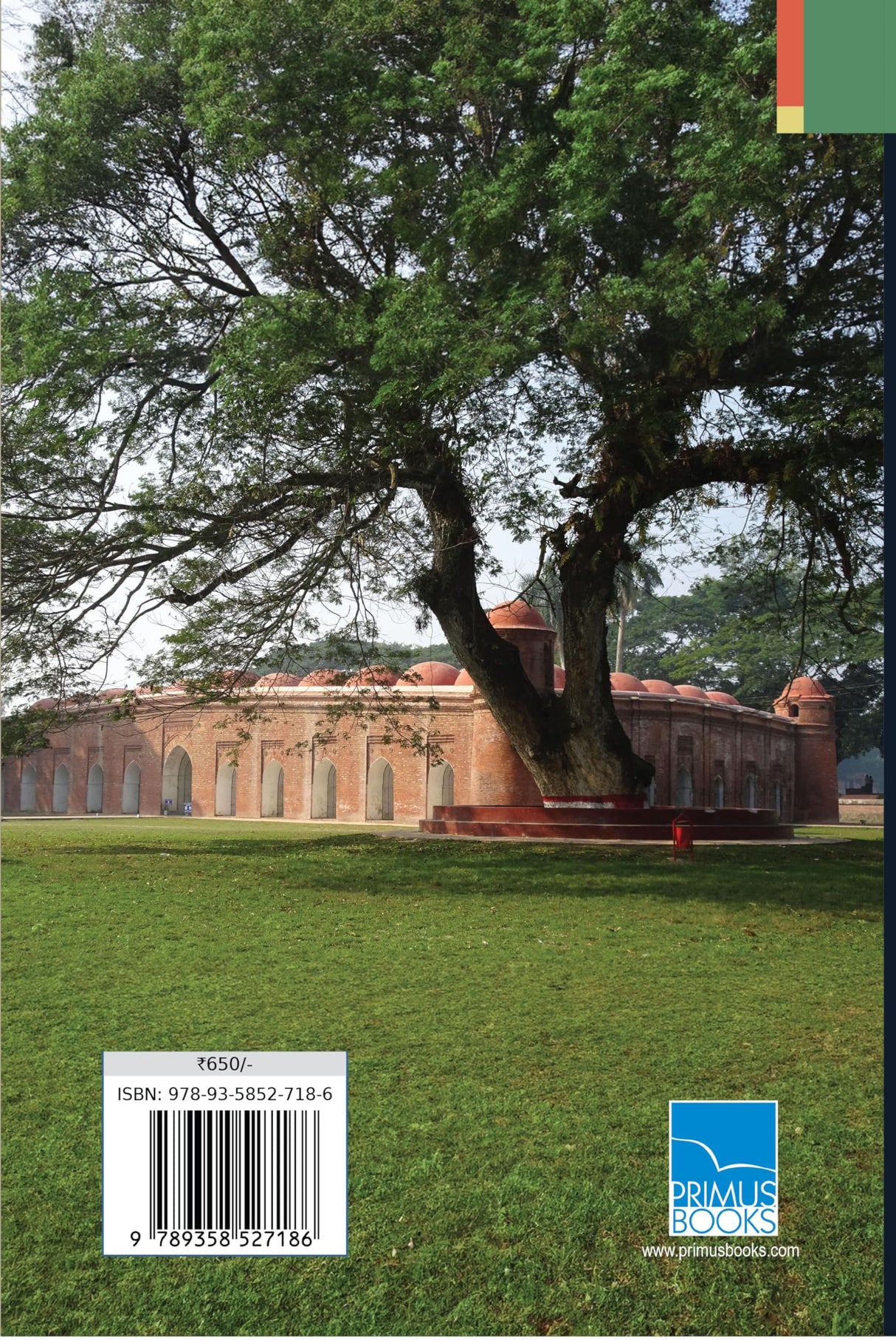Primus Books - The Rise of Islam and the Bengal Frontier, 1204-1760
Primus Books - The Rise of Islam and the Bengal Frontier, 1204-1760 is backordered and will ship as soon as it is back in stock.
Couldn't load pickup availability
Genuine Products Guarantee
Genuine Products Guarantee
We guarantee 100% genuine products, and if proven otherwise, we will compensate you with 10 times the product's cost.
Delivery and Shipping
Delivery and Shipping
Products are generally ready for dispatch within 1 day and typically reach you in 3 to 5 days.
Author: Richard M. Eaton
Brand: Primus Books
Edition: Classic Edition
Binding: paperback
Number Of Pages: 412
Release Date: 02-02-2025
Details: Among the regions of South Asia, Bengal proved extraordinarily receptive to the Islamic faith. This area, and especially the eastern delta comprising today’s Bangladesh, contains the world’s second-largest Muslim ethnic population. How and why did such a large Muslim population emerge there? And, more broadly, how does the religious transformation of an entire population take place? Richard Eaton’s study examines the unique processes that shaped Bengal’s cultural landscape, focusing on the dynamics of moving frontiers and the long historical encounter between Islamic and Indic civilizations. The Rise of Islam and the Bengal Frontier is as much an essay in geography as in history, for the Bengal delta was a frontier of many facets. Eaton traces the establishment and evolution of the Indo-Islamic community from the year 1204, when Persianized Turks from North India swept into and annexed the former Hindu states of the lower Ganges delta, to 1760, when the British East India Company rose to political dominance in the region. Whether Bengal was ruled as a province of the Delhi sultans, as an independent kingdom under local sultans, or as a province of the Mughal empire, sociopolitical developments were accompanied by economic transformation—the eastward expansion of the agrarian frontier and the advance of settled agricultural communities, organized around wet rice cultivation. Using archaeological evidence, inscriptions, architectural examples, narrative histories, poetry, and Mughal administrative documents, Eaton explores these different kinds of moving frontiers and their mutual relations, especially the connections between agrarian growth and religious change.
EAN: 9789358527186
Languages: English

